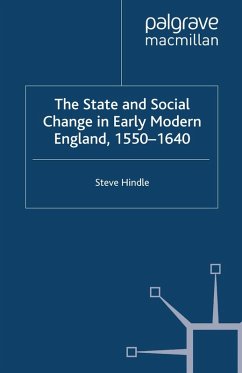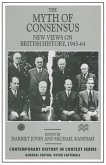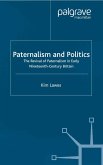This is a study of the social and cultural implications of the growth of governance in England in the century after 1550. It is principally concerned with the role played by the middling sort in social and political regulation, especially through the use of the law. It discusses the evolution of public policy in the context of contemporary understandings, of economic change; and analyses litigation, arbitration, social welfare, criminal justice, moral regulation and parochial analyses administration as manifestations of the increasing role of the state in early modern England.
Dieser Download kann aus rechtlichen Gründen nur mit Rechnungsadresse in A, B, BG, CY, CZ, D, DK, EW, E, FIN, F, GR, HR, H, IRL, I, LT, L, LR, M, NL, PL, P, R, S, SLO, SK ausgeliefert werden.









